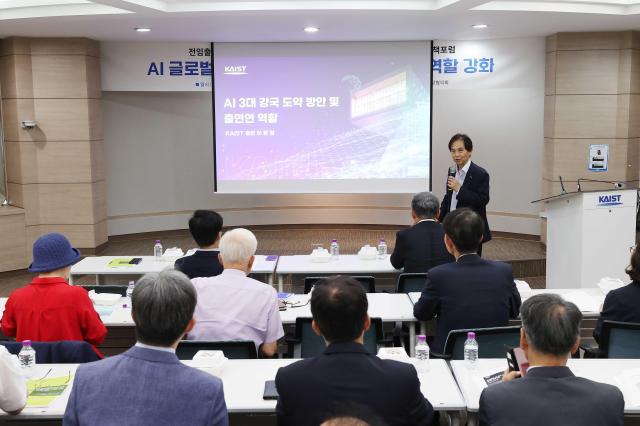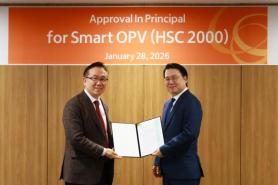
SEOUL, July 08 (AJP) - KAIST President Lee Kwang-hyung on Monday called for South Korea to take bold steps to become one of the world's three leading artificial intelligence powers, stressing the urgency of building a fully independent AI ecosystem.
Speaking at a national science and technology policy forum held in Seoul on Monday, Lee laid out a wide-ranging strategy that ties AI development to national infrastructure, education, semiconductors, and global alliances.
"We are one of only four countries in the world with our own internet portal," Lee said. "We lead in semiconductors. That means we have the groundwork to become one of the world’s top three AI powers. But we have to move, now."
Lee said AI should be treated not just as a tool but as a structural backbone of the next era. He warned of the risks of relying on foreign platforms, especially in sensitive areas like national defense and public education.
"If a child asks an AI whether Dokdo is Korean territory, and the answer depends on who is asking, that's not just a problem of misinformation. That's a national vulnerability," he said.
He emphasized that South Korea must build its own base models using domestic data and languages. At the same time, it must align development in AI hardware such as semiconductors. "AI and semiconductors must now be seen as one problem," he said. "It’s not just about building chips faster or smaller. It’s about understanding what kinds of thinking we want machines to do."
Lee also criticized the current heavy reliance on data centers, calling it unsustainable. He predicted a shift toward personal AI systems running on mobile devices. "Right now, everyone is rushing to build massive data centers. But soon, people will want AI that lives in their own phones, in their own hands," he said.
He noted South Korea’s unique position, with domestic tech platforms like Naver, Kakao, and Coupang, which allow the country to build a distinct digital ecosystem. "Countries like Germany, France, and Japan all rely on Google. But we have our own," he said.
Looking at the geopolitical picture, Lee suggested South Korea could partner with Southeast Asian and Arab countries to form a third major force in the global AI race. The United States and China currently dominate. "If we join forces with the Arab world and ASEAN, we can shape our own rules and markets. The technology is here, and the capital is there," he said.
At KAIST, Lee said the school is moving quickly to respond. "We’ve launched a new AI mathematics department and are expanding AI education across the board," he said. He pointed to a program that pairs graduate students with professors to help transition into AI-led research.
He also spoke about the potential of AI to address structural problems in South Korea’s economy, including low productivity and a shrinking workforce. "AI can double efficiency, which is like cutting labor costs in half," Lee said. "If we integrate AI into manufacturing and infrastructure, it will not only boost productivity but help offset the effects of population decline."
On the concern that AI could increase unemployment, Lee said the focus should be on transformation. "If we embrace AI in the right way, it will create more jobs, not fewer," he said.
Lee urged closer collaboration between public research institutes and universities. He said both sectors must move faster. "We have to get on this wave now," he said.
Copyright ⓒ Aju Press All rights reserved.




